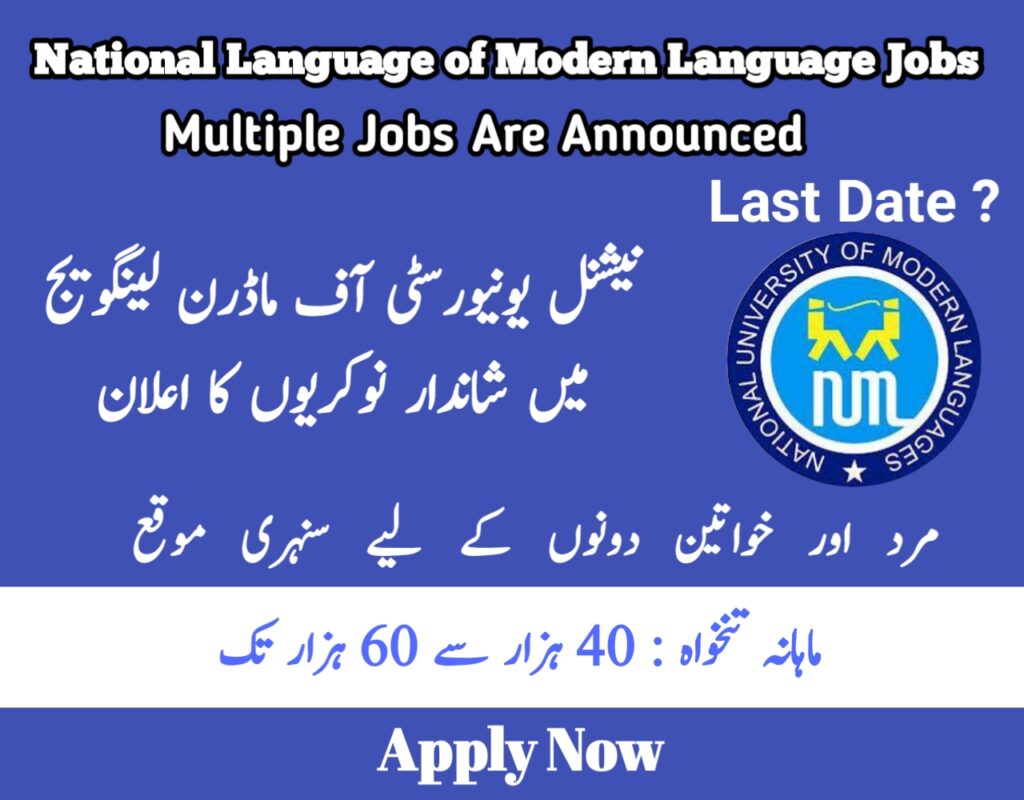Introduction:
In the vibrant tapestry of Pakistan’s educational landscape, the National University of Modern Languages (NUML) stands as a beacon of linguistic excellence and cultural diversity. Founded in 1970 in Islamabad, NUML has evolved into a premier institution dedicated to promoting modern languages, literature, and social sciences. With its commitment to fostering intercultural understanding and proficiency in languages, NUML plays a pivotal role in shaping Pakistan’s socio-cultural fabric and global engagement. This comprehensive exploration delves into the multifaceted dimensions of NUML’s modern language sector, elucidating its academic programs, research initiatives, and cultural contributions.
Academic Programs:
NUML offers a diverse array of academic programs catering to the dynamic needs of Pakistan’s linguistic landscape. At the undergraduate level, students can pursue degrees in languages such as English, Urdu, Chinese, Arabic, French, German, and Spanish, among others. These programs provide a solid foundation in language proficiency, literary analysis, and cultural studies, equipping graduates with valuable skills for diverse career paths in academia, diplomacy, media, and international business.
Furthermore, NUML’s graduate programs delve deeper into linguistic theory, translation studies, and applied linguistics, offering specialized tracks for aspiring scholars and professionals. The university’s Master of Philosophy (MPhil) and Doctor of Philosophy (PhD) programs provide avenues for advanced research and scholarly inquiry, fostering intellectual discourse and innovation in language studies.
Language Proficiency Centers:
In addition to formal degree programs, NUML operates Language Proficiency Centers dedicated to enhancing language skills and cultural awareness. These centers offer a range of courses and proficiency tests in languages such as English, Mandarin, Arabic, and French, catering to students, professionals, and government officials alike. NUML’s Language Proficiency Centers serve as hubs for language learning and cross-cultural exchange, facilitating dialogue and cooperation on both national and international levels.
Research Initiatives:
NUML’s modern language sector is characterized by its vibrant research culture and scholarly output. Faculty members and researchers are actively engaged in exploring various facets of language, literature, and culture through interdisciplinary approaches. From sociolinguistic studies to translation theory, NUML’s research initiatives contribute to the advancement of knowledge and understanding in diverse linguistic contexts.
The university’s research centers and institutes serve as catalysts for intellectual inquiry and collaboration, fostering interdisciplinary dialogue and innovation. Projects funded by national and international grants address pressing issues in language policy, multilingualism, and linguistic diversity, reflecting NUML’s commitment to academic excellence and social relevance.
Cultural Exchanges and International Collaborations:
NUML’s modern language sector thrives on its vibrant cultural exchanges and international collaborations. The university hosts numerous conferences, seminars, and workshops that bring together scholars, educators, and practitioners from around the globe. These platforms facilitate cross-cultural dialogue and collaboration, fostering mutual understanding and cooperation in the field of language and literature.
Furthermore, NUML actively participates in international exchange programs and collaborations with foreign universities and cultural institutions. Student exchange programs, faculty visits, and joint research initiatives enrich NUML’s academic environment, exposing students and faculty to diverse perspectives and methodologies. Through these collaborations, NUML strengthens its global presence and contributes to the promotion of linguistic and cultural diversity on the world stage.
Community Engagement and Outreach:
NUML’s modern language sector extends its impact beyond the confines of the university campus through community engagement and outreach initiatives. The university organizes language courses, workshops, and cultural events for local communities, promoting language learning and intercultural dialogue at the grassroots level. Additionally, NUML’s outreach programs provide support for marginalized communities, including language training for refugees and migrants, empowering them to participate more fully in society.
NUML’s modern language sector also collaborates with government agencies and non-profit organizations to address pressing language-related issues, such as language policy development and language revitalization efforts. By actively engaging with communities and stakeholders, NUML fulfills its role as a catalyst for positive change and social development in Pakistan and beyond.
Conclusion:
The National University of Modern Languages (NUML) occupies a central position in Pakistan’s educational landscape, fostering linguistic excellence, cultural understanding, and global engagement. Through its modern language sector, NUML offers a wide range of academic programs, research initiatives, and cultural exchanges that enrich the academic experience and promote intercultural dialogue. As Pakistan continues to navigate the complexities of a rapidly changing world, NUML remains committed to its mission of advancing linguistic proficiency, cultural awareness, and social cohesion for the betterment of society.
